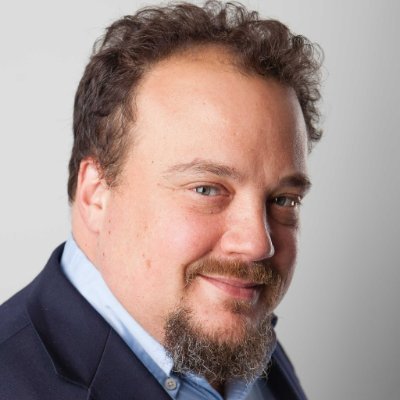
Mike Klein is a communication consultant with extensive experience in the corporate and political worlds, and is the founder of #WeLeadComms. In this feature, he shares his career, business and personal interests.
Continue reading or listen here:
Why did you pursue a career in public relations and communications?
I got my start on the political side very early — I volunteered on US political campaigns as a teenager (largely because I sucked in sports yet wanted to be involved in something competitive, and worked professionally in politics for the first ten years of my career.
Leaving US politics for the MBA program at London Business School, the opportunity to focus on corporate communication presented itself in a summer internship with Eli Lilly performing my first communication audit, and internal communication became the obvious need and issue. That sparked a 25-year career focusing mainly on internal comms.
What areas within the industry are you most interested in (currently)?
A combination of internal comms and political/sustainability advocacy are the main things I’m focusing on professionally, and I’m also active in promoting the overall leadership role of communication professionals through the #WeLeadComms initiative.
How has public relations and communications changed since you first started working in the industry?
It’s been remarkable both in how much and how little it’s changed. Technology, workplace strategy, and the emergence of powerful multinationals outside of North America and Western Europe have been the big changes, but the expectations and constraints facing communication professionals have remained starkly fixed.
Internally, there’s a continuing overemphasis on top-down, one-way communication even as social media use has shown that influence and virality are major drivers of behavior and amplification inside and outside the “firewall.”
Externally, there remains a focus on mainstream media mentions, which while a partial measure of relevance and credibility, have much less direct traction than social media and other more informal approaches.
What trends are you seeing that pose the biggest opportunity or threat to the industry?
AI-phobia is a huge, perhaps even existential threat, more than AI itself is. AI-phobia, expressed in terms of trying to protect against job losses and loss of responsibilities, could push other stakeholders to take control over the way AI ends up being used in comms. We need to take the initiative — or the initiative will be taken for us.
Why did you found #WeLeadComms?
Two main reasons. First, I thought our industry’s approach to recognition — to focus on work that’s been previously done and evaluating one’s work and career retrospectively — made zero sense. Communication professionals put themselves on the line every day. We practice courage, initiative and leadership every day, and I thought it was time for a recognition vehicle that does just that. So #WeLeadComms recognizes communication leaders across geographies, disciplines, career stages and association levels.
The second was that our profession needs an agile advocate — not something that’s bogged down in internal politics or encumbered by dues and administrivia. With a growing followership of 14,000 comms leaders around the world, it’s an approach that’s resonating.
Which animal should be the mascot for the comms profession?
Without a doubt, the wild boar. Underrated, intelligent, resourceful, dedicated and resilient. And with a nose for great content.
What do you believe makes a company a great place to work in?
Pizza, foosball and lots of PowerPoint-based conferences in sterile airport hotels.
Seriously, I think the biggest thing is internal consistency.
I don’t think an organization needs to be pious or virtuous — but it needs to walk its talk. If you’re talking about sustainability, define it actionably and take the actions. If your purpose is more mercenary, then be honest about it and don’t make your employees have to engage in performative activities to cover that up. Clarity beats fairness.
Do you work in an office, remotely or have a hybrid model? What is your preference, and why?
I’ve been working from home for the last six years, but I’ve been told I’m too loud. I’ve just rented an office space.
What is your leadership or management style?
Leadership — sometimes from the front and sometimes from the middle. I initiate things, and I also connect people.
Management — try to minimize it as much as possible as it’s a huge time suck and not my natural strength.
What key skill or characteristic do you look for when hiring new people?
Complementary strengths and high ambition.
What is your favourite book or movie?
The Godfather, otherwise simply known as “One.”
Would you welcome a digital detox for a week or approach it with caution?
Forget about it. Not going to happen.
Do you prefer sun holidays or city breaks?
City breaks for sure — this year has included Riga, Chicago and some great towns in Northern Portugal. As it happens, Chicago has a great beach scene and Riga is 15km away from the Baltic.
If you won the lotto what would you do?
What I’m doing now, and also do a lot more training for like-minded folks who care about the things I care about.
© 2024 Strategic. Registered in Ireland: 659272